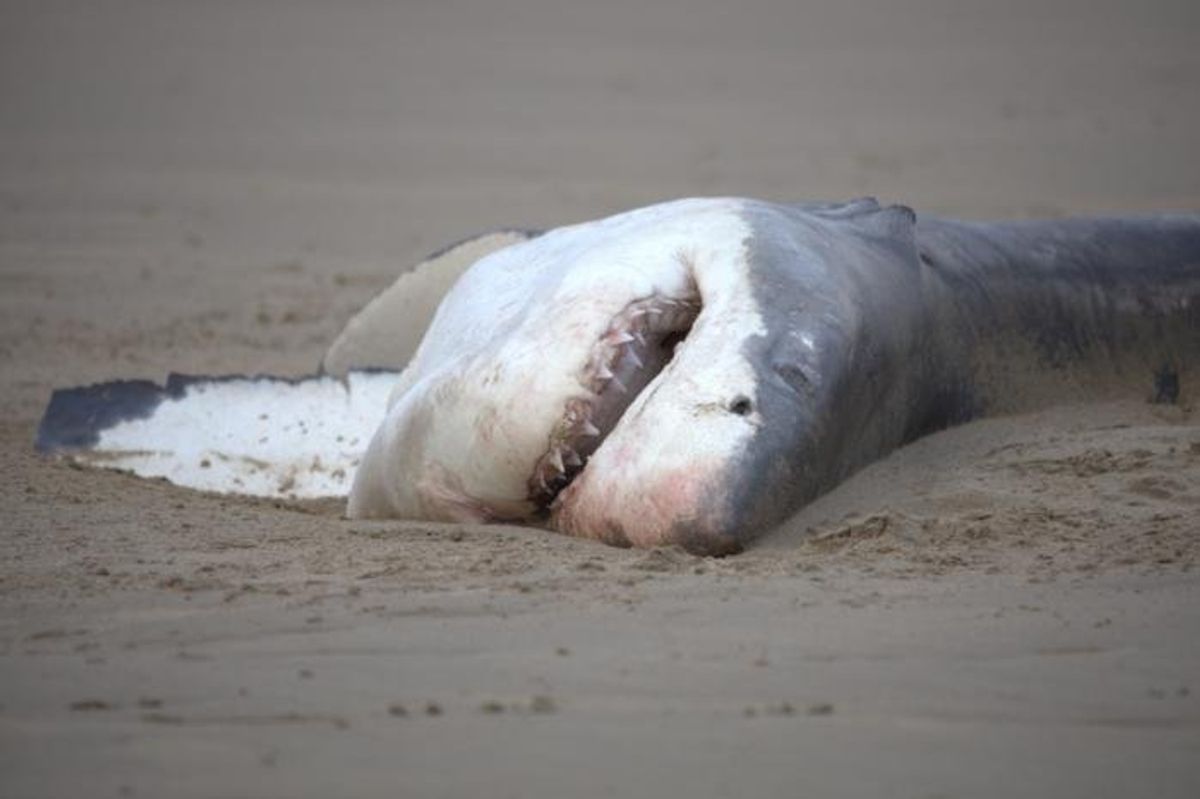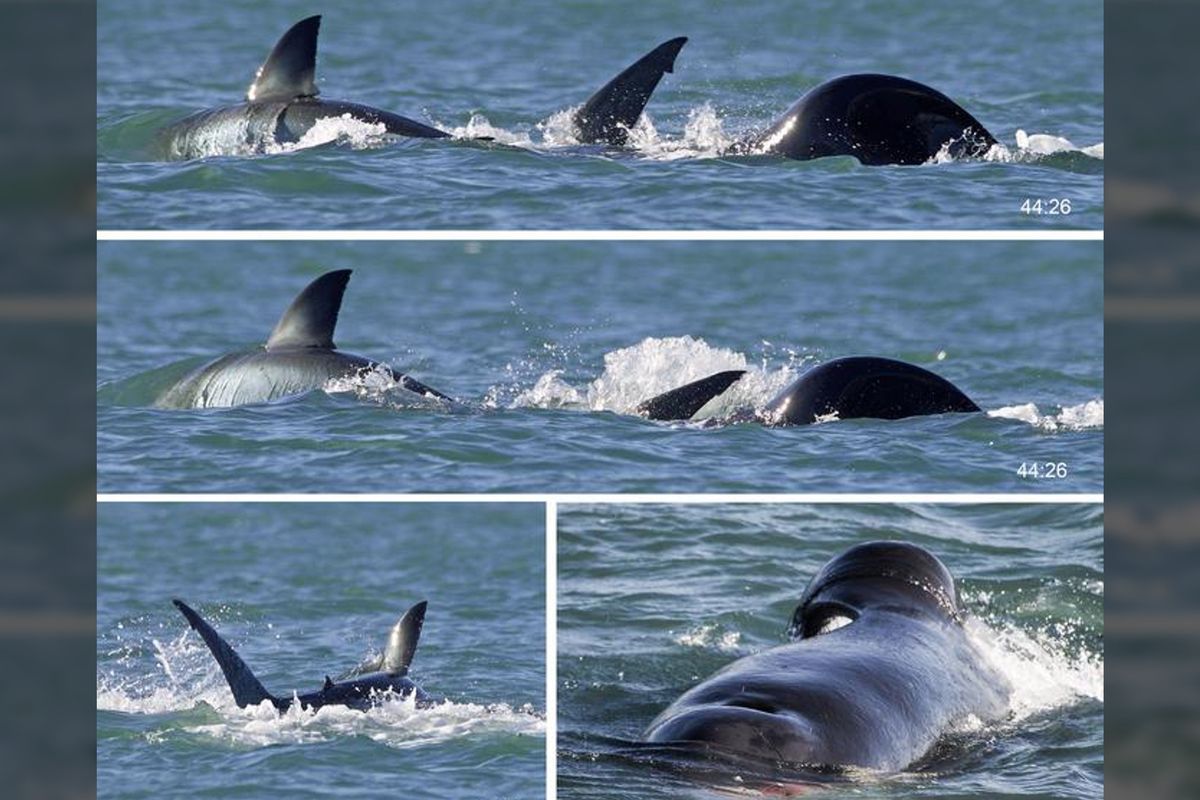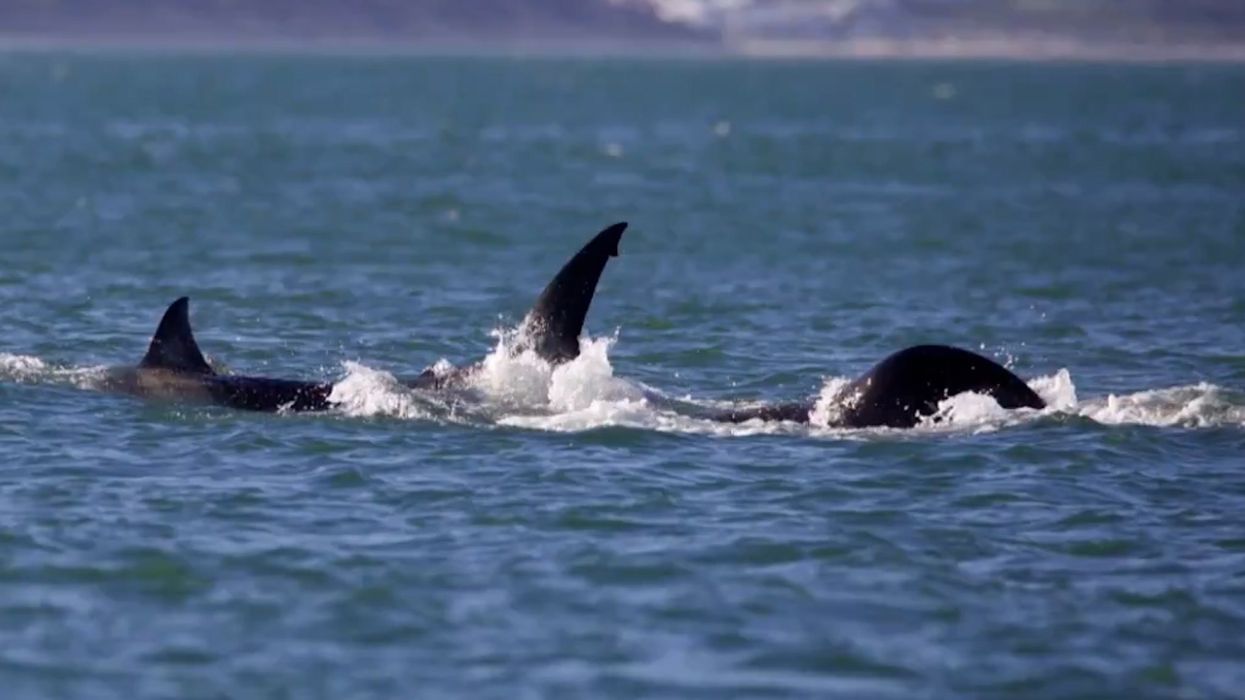Harriet Brewis
Mar 06, 2024
Expert explains why orcas killing great white sharks after attack caught on …
Sky News
An orca has truly earned the title of “killer whale” after it was filmed devouring a great white shark in a matter of seconds.
The dramatic battle, recorded in Mossel Bay, South Africa, saw the whale tear off the shark’s left pectoral fin in under two minutes.
The black and white beast then feasted on the shark’s liver, according to scientists who observed the jaw-dropping encounter in June last year.
And whilst orcas have been known to hunt the notorious finned predators in packs, this is the first known case of a whale annihilating a great white all on its own.
“The astonishing predation, off the coast of Mossel Bay, South Africa, represents unprecedented behaviour underscoring the exceptional proficiency of the killer whale,” Dr Alison Towner, from Rhodes University, said in a statement.
Detailing the event in a new study, published in the African Journal of Marine Science, Towner and her colleagues said that the murderous act was carried out by a male orca called Starboard.
Starboard is well known by researchers, having first appeared in the region in 2015 and forming part of a pack of white shark-killing whales.

He and his hunting partner Port (named as such because their dorsal fins are bent in opposite directions, as IFL Science points out) have been spotted collaboratively preying on sharks on numerous occasions since 2017.
During these ambushes, the pair work together – and sometimes with the help of up to four more orcas – to surround and trap great white sharks before tearing out their nutrient-rich livers.
These deadly assaults have led to many shark species avoiding Mossel Bay – an area that was previously famous for its large great white population.
Starboard’s single-handed attack occurred at 3pm local time on June 18, 2023, when a juvenile white shark measuring around 8.2 feet (2.5 metres) in length appeared at the surface of the water.
The orca followed close behind before “grip[ping] the left pectoral fin of the shark and thrust[ing] forward with the shark several times before eventually eviscerating it,” the study’s authors wrote.
“Remarkably, the period from seizing the shark by the pectoral fin to eviscerating it lasted less than two minutes.”
Killer Whale vs White Shark: New Study Reveals Astonishing Predation Tacticswww.youtube.com
And although Starboard’s trusty sidekick, Port, was around to witness the whole thing, he stayed about 100 metres (338 feet) away throughout, leaving his friend to enjoy the spoils on his own.
Towner and her team noted in their paper that Starboard was seen shortly afterwards with “a bloody piece of peach-coloured liver in [his] mouth.”
Interestingly, the following day, the researchers reported “the distinct smell of shark liver” in the air and an ominous oily slick on the ocean’s surface.
And sure enough, the carcass of a second shark, whose liver had also been gouged out, was found washed up on the shore nearby.
In this case, however, they couldn’t confirm whether the shark was the victim of a solo orca hunter or a group.
Still, it is also worth noting that the young shark mutilated by Starboard weighed an estimated 100kg (220lbs), which is a great deal less than the 2.5 tonnes (2.76 tons) of a fully-grown 6.5 metre-long great white.
Such a behemoth would probably be a bit too much for even a seasoned pro like Starboard to handle, and so “cooperative hunting” remains key.

Regardless, none of this looks good for the region’s great white community, as Towner noted.
“The study raises critical questions about the impact of killer whale predation on shark populations in South Africa,” she said, adding that “the displacement of various shark species due to killer whale presence may have implications for mesopredator release and potential trophic changes in the marine ecosystem.”
Therefore, their “groundbreaking insights into the predatory behaviour” of the killer whale species will prove crucial to better understanding “marine ecosystems and predator-prey relationships,” they stress.
Co-author Dr. Primo Micarelli, who witnessed Starboard's attack, commented: “Over two decades of annual visits to South Africa, I've observed the profound impact these killer whales have on the local white shark population. Seeing Starboard carry a white shark's liver past our vessel is unforgettable.
“Despite my awe for these predators, I'm increasingly concerned about the coastal marine ecology balance”.
Sign up for our free Indy100 weekly newsletter
Have your say in our news democracy. Click the upvote icon at the top of the page to help raise this article through the indy100 rankings
Top 100
The Conversation (0)













